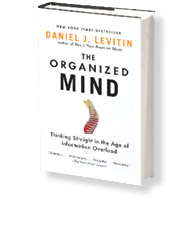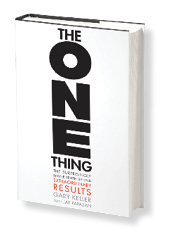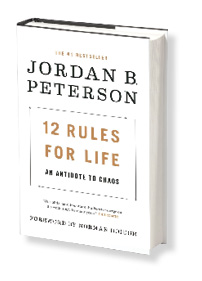We are reprising this column, in part because of our passion for reading, but equally, if not more so, our passion to share our literary life with someone, anyone, who treasures discovering something exceptional to read.
One recommendation — it certainly isn’t necessary but it will be eye-opening — is to get hold of Mortimer J. Adler’s and Charles Van Doren’s book, entitled descriptively enough How to Read a Book. It was written in 1940 and rewritten in 1972, but the earlier version is better than the more-modern one.
Be forewarned: The title is deceptively simple. This is a book written by two of the best-read intellectuals of their time. Adler’s imprint is indelible on the Encyclopedia Britannica, having served for many years as the chairman of its board of editors (no small accomplishment on a resume).
In any event, anyone who even peruses their book will never again utter the glib words, “Print is dead.” The fact is that smart people read widely, deeply, and voraciously — and silly or shallow people don’t.
Sermon over.
Now to the fun part. Let me introduce you to three relatively recent titles that have the capacity to expand your thinking, change the way you approach business, or give you a new and wise perspective on how you should be living your life.
Let’s begin with The Organized Mind by Professor Daniel J. Levitin. The subtitle reflects the challenge of our time: “Thinking Straight in the Age of Information Overload.”

The reason you should read this book, other than to marvel at the research and scholarship and understanding of the workings of the brain that the author exhibits on every page, is that, simply, it will make your life better, easier, and far less frustrating. At a practical level, this is a “how-to” book.
Ponder this passage:
“Every day, millions of us lose our keys, driver’s licenses, wallets, or scraps of paper with important phone numbers. And we don’t just lose physical objects, but we also forget things we were supposed to remember, important things like the password to our e-mail or a website, the PIN for our cash cards — the cognitive equivalent of losing our keys. These are not trivial things; it’s not as if people are losing things that are relatively easy to replace, like bars of soap or some grapes from the fruit bowl. We don’t tend to have general memory failures; we have specific, temporary memory failures for one or two things. During those frantic minutes when you’re searching for your lost keys, you (probably) still remember your name and address, where your television set is, and what you had for breakfast — it’s just this one memory that has been aggravatingly lost. There is evidence that some things are typically lost far more often than others: We tend to lose our car keys but not our car, we lose our wallet or cell phone more often than the stapler on our desk or soup spoons in the kitchen, we lose track of coats and sweaters and shoes more often than pants. Understanding how the brain’s attentional and memory systems interact can go a long way toward minimizing memory lapses. . . . There are things that anyone can do to minimize the chances of losing things, and to quickly recover when things do get lost.”
Or try this on: We associate “bandwidth” with the Internet, streaming, and broadcasting, but it applies in human contexts as well. The author explains:
“In order to understand one person speaking to us, we need to process 60 bits of information per second. With a processing limit of 120 bits per second, this means you can barely understand two people talking to you at the same time. Under most circumstances, you will not be able to understand three people talking at the same time.”
Now you understand why you don’t understand when you’re on the phone, talking to someone while someone else in the room is yelling in your ear to “ask them this or ask them that.” As humbling as it may be, human beings are severely limited in their ability to communicate, understand, and perform multiple acts simultaneously. Sorry, despite what you might have heard or what you may believe about your own abilities, “multitasking” simply does not work.
Best advice we can give you? Read the book. Your brain will work better.
Another book (which is actually a pretty good segue from our thought on multitasking) is The ONE Thing by Gary Keller with Jay Papasan. This is a book (No. 1 Wall Street Journal bestseller) that we give out by the dozens to friends and business associates who get lost, or dazzled, by all of the “opportunities” out there. Simply put, The ONE Thing is the ultimate instruction manual on focus and its relationship to “the surprisingly simple truth behind EXTRAORDINARY results.”

The author, Gary Keller, knows all about this. He was running a small real estate agency in Austin, Texas; a tough guy, tough on himself but even tougher on his staff, working the day shift and the night shift and the weekend shift until he finally worked himself into a hospital bed for exhaustion.
In part, Keller’s transformation can be traced to a wise decision he made to hire an executive coach who came into the firm, looked at its operations, went home for a spell to “think,” and returned with a simple question:
“Do you know what you need to do to turn things around?”
Keller writes, “I hadn’t a clue.”
The coach had pasted the company’s organization chart on the wall.
“He said there was only one thing I needed to do. He had identified 14 positions that needed new faces, and he believed with the right people in those key spots, the company, my job, and my life would see a radical change for the better. I was shocked and let him know I thought it would take a lot more than that.
“He said, ‘No, Jesus needed 12 but you’ll need 14.’”
Based on that meeting, Keller “fired himself” as CEO and made it his singular focus to find those 14 people. In effect, he became an executive recruiter of executives for his own firm. Today Keller Williams Realty, Inc. is the largest real estate firm in the world.
What makes Keller’s book so valuable, invaluable really, is that it is so contrarian to the usual orthodoxy that passes for wisdom both in the business community but even more so in MBA programs that have sprung up at nearly every college and university. Keller speaks directly to us without all the pomposity or mumbo jumbo of academicians but with the authority of someone who has actually achieved success in real life, not theorized about it in a classroom.
A third book (and given our comments on focus and the myth of multitasking, we probably shouldn’t suggest that you read all three simultaneously) will demand your complete attention. The depth and breadth and scope of Jordan B. Peterson’s 12 Rules for Life will fill readers with awe. Think of this book as a gift of generosity from the author to us, his readers.

Take from its pages what you will; to us the recurring theme is reflective of Ralph Waldo Emerson’s timeless essay on “Self-Reliance.” The thought is a simple one: We each are responsible for ourselves —for our behavior, for our successes, for our failures, for making our way in life. It would be blasphemy for either Emerson, or Peterson, to subscribe to Hillary Clinton’s thesis set forth in her mushy, if not muddled, book, It Takes a Village.
Collectivism, or socialism, or community-ism are refreshingly absent from Peterson’s pages. Peterson, not unlike Ayn Rand, elevates and celebrates the individual.
While it will surprise no one that there are a plethora of websites that have sprung up dedicated to sharing the “best quotes” of Jordan B. Peterson, let me assert my “editor’s privilege” and offer just a few of my own.
The first is actually from a podcast, and it’s gone viral:
“ . . . don’t be fixing up the economy, 18-year-olds. You don’t know anything about the economy. It’s a massive complex machine beyond anyone’s understanding and you mess with it at your own peril. So can you even clean up your own room? No. Well you think about that. You should think about that, because if you can’t even clean up your own room, who the hell are you to give advice to the world?”
Or: “Intolerance of others’ views (no matter how ignorant or incoherent they may be) is not simply wrong; in a world where there is no right or wrong, it is worse: it is a sign you are embarrassingly unsophisticated or, possibly, dangerous.”
Or: “Compare yourself to who you were yesterday, not to who someone else is today.”
Or: “Work as hard as you possibly can on at least one thing and see what happens.”
Or, finally: “You’re not everything you could be, and you know it.”
One might not be wise to judge a book by its cover, but sales do offer a clue as to a book’s value. 12 Rules for Life, as of January 2019, had sold more than 3 million copies in hardcover. Can 3 million book buyers be wrong? Absolutely. In the case of 12 Rules for Life, absolutely not.



















